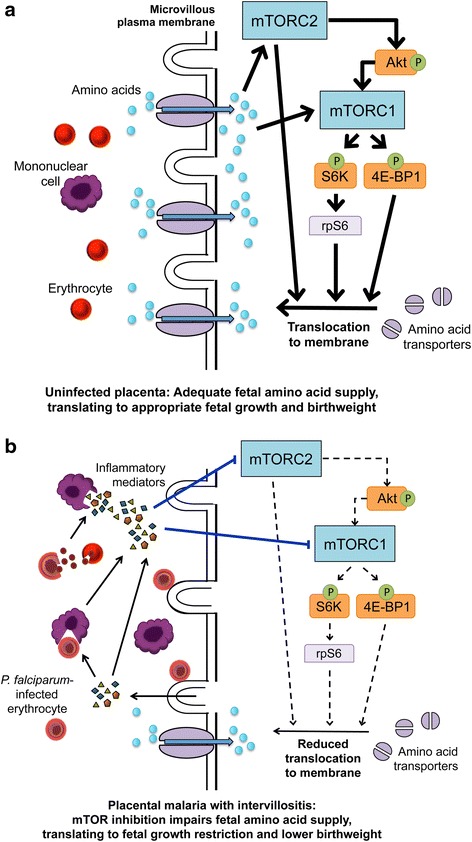Fig. 4.

Proposed mechanism for reduced birthweight in placental malaria-associated intervillositis. a Under normal physiological conditions, upstream regulators of mTOR such as growth factors and hormones activate mTOR and its downstream effectors rps6, 4E-BP1, and Akt, which promote the translocation of amino acid transporters to the microvillous plasma membrane, promoting transplacental amino acid transfer and adequate fetal growth and birthweight. b In placental malaria-associated intervillositis, inflammatory mediators are released by monocytes after phagocytosis of P. falciparum-infected erythrocytes, by rupture of infected erythrocytes, and by the syncytiotrophoblast in response to the adhesion of infected erythrocytes. This inflammatory response inhibits mTOR signaling, reducing amino acid transport by decreasing the translocation of amino acid transporters to the microvillous plasma membrane. This results in a suboptimal amino acid fetal supply and reduced fetal growth and birthweight
